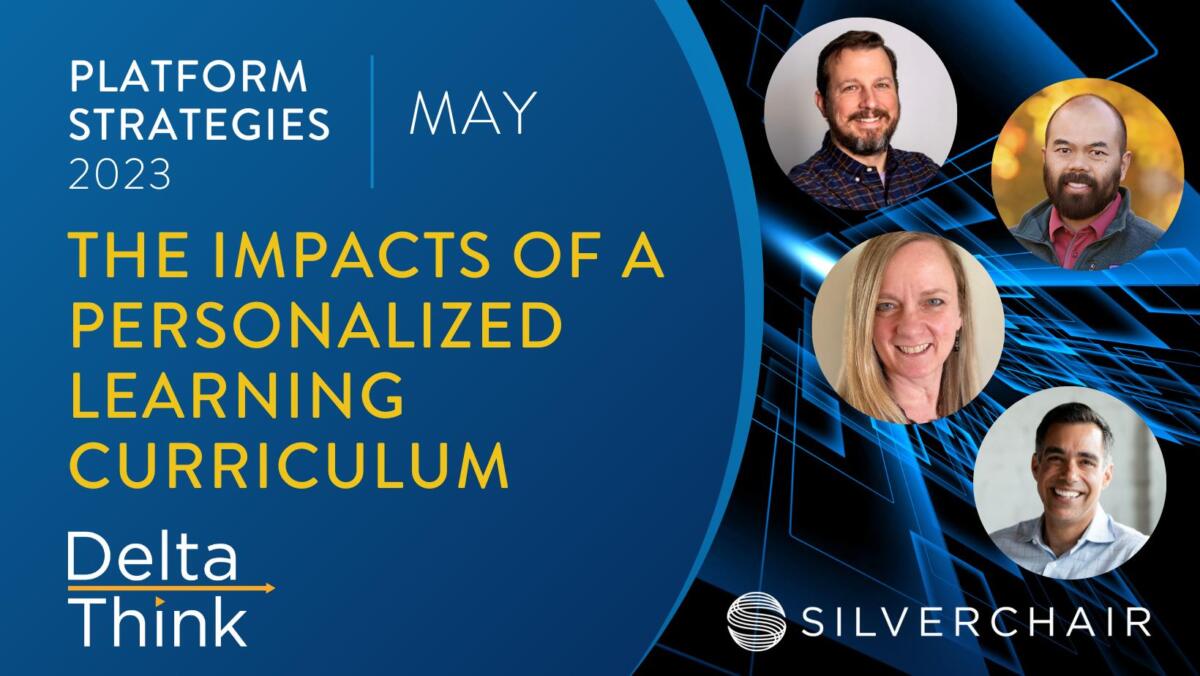
Speakers:
- Diane Harnish, Senior Consultant & Education Practice Director, Delta Think, Inc (Moderator)
- Jake Zarnegar, Chief Business Development Officer, Silverchair (Moderator)
- Jonathan Wisco, Associate Professor at Boston University Aram V. Chobanian & Edward Avedisian School of Medicine, Department of Anatomy and Neurobiology
- Brian Moore, Director of Online Learning, Assessment, Examinations & Curriculum Planning, AAOS
- Gabrielle Lakis, M1 at Boston University Aram V. Chobanian & Edward Avedisian School of Medicine
- Avenelle Onaifo, M1 at Boston University Aram V. Chobanian & Edward Avedisian School of Medicine
DH: At BU, when you were putting together some of the curriculum changes, was individualized learning one of your strategic objectives? For the students, was that attractive to you when you were applying to medical schools?
JW: The idea of individualized education is extremely important to us because what we are trying to do is train or provide the training pathway for each of our students to develop a personal and a professional identity formation, and a career path that helps them achieve the impact they want to have on medicine.
That said, students must learn a certain amount of anatomy, physics, microbiology, but you do not have to learn everything. Therefore, one of our highest priorities is to train lifelong learners. We are trying to train them with the skills to decide what content is most important for them at that moment.
The problem with individualized pathways is that what Gabby might need in December could be what Avenelle wants in March. The timeline is different for every student. And if you hone in on the daily routine, there is no way that each student is studying the same thing or emphasizing the same thing in their study on even a daily basis, let alone a monthly basis.
We are trying to help them navigate through that pathway. It is a lot of fun, but it's like herding cats. What is most frustrating to me is when I want to provide content and deploy it to the students in the way they need it, but I need to go to this resource, and that resource, and this resource.
We gave up on those resources a long time ago. We have been writing our own content for 15-20 years and then using what is available that can be granular enough to deploy to our students. Some resources have not been helpful for that individualized pathway.
BM: We have such a wealth of content that we sit on as a medical publisher. To be able to have that at our fingertips, to compile that content, and to have strong relationships throughout the industry, means that we can partner with publishers and bring that knowledge together. That was one of the main things that we heard from both residents and program directors when researching what would become ROCK: they needed to have all of that content pulled together so they do not have to find it. They do not have to go track it down. Being the curator of that knowledge has been empowering.
GL: As a student, it's appealing to go to a medical school that has this level of flexibility. Especially now when we want to be engaged in other extracurriculars, such as research, or curriculum development, you want the flexibility of a curriculum to learn when you want and in the most efficient way for yourself.
We have a preceptorship in the hospital. And during my preceptorship I was placed in the ER. One of my preceptors told me, “I am a firm believer that the brain has limited capacity. You cannot memorize everything, but you need to know where you can find that information when you need it.” That was a big shift, and it affirmed where our curriculum is heading. You do not need to memorize every little detail because that is not what is going to help you in the long term.
That statement from my preceptor indicated where medical education is heading. With the amount of information that there is out there, you cannot take it upon yourself to know it all. You have to trust that you know what you know, but also be aware of what you do not know.
Want to hear more? Check out the full webinar: How has Digital Education impacted how we learn, teach, & research?